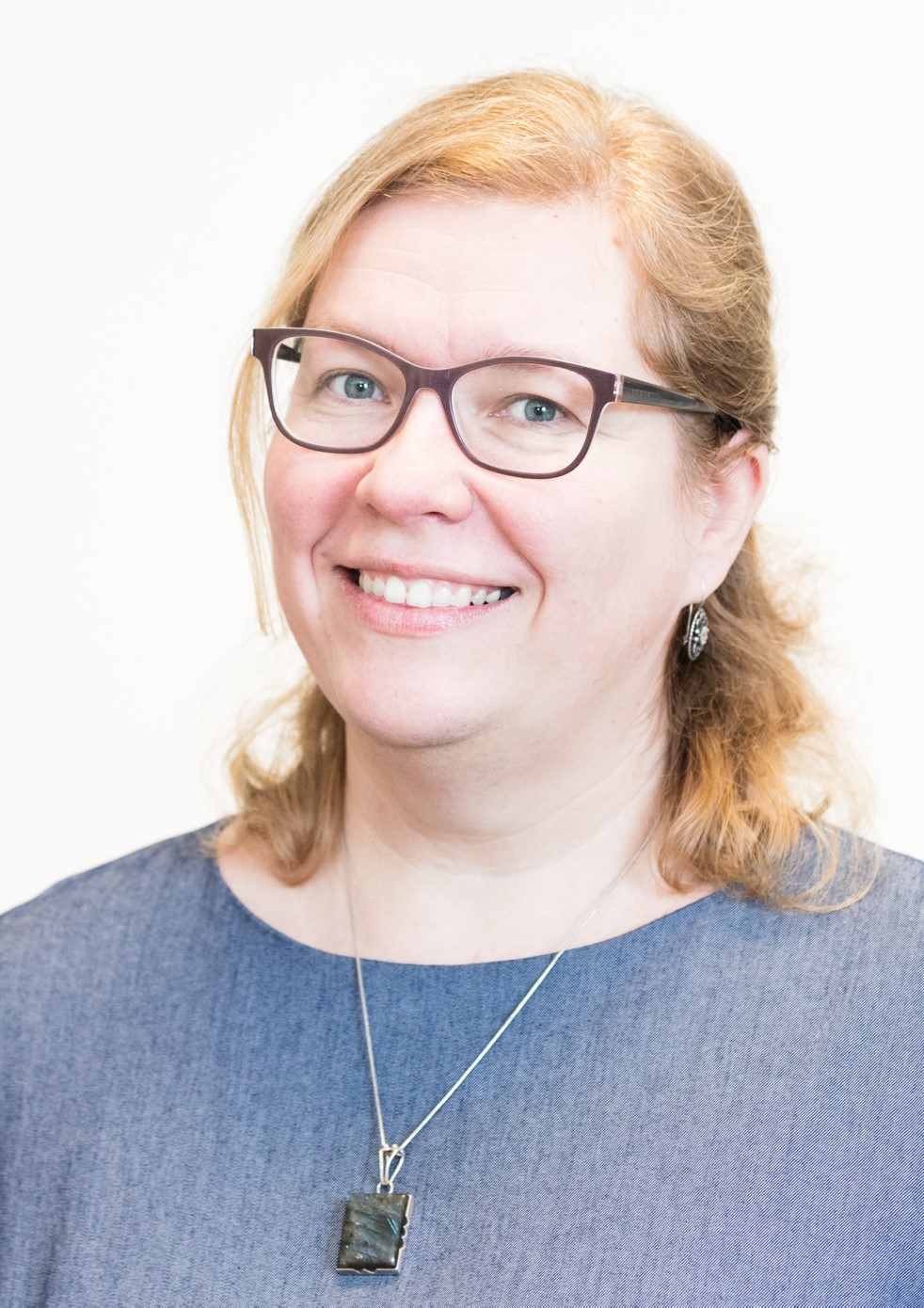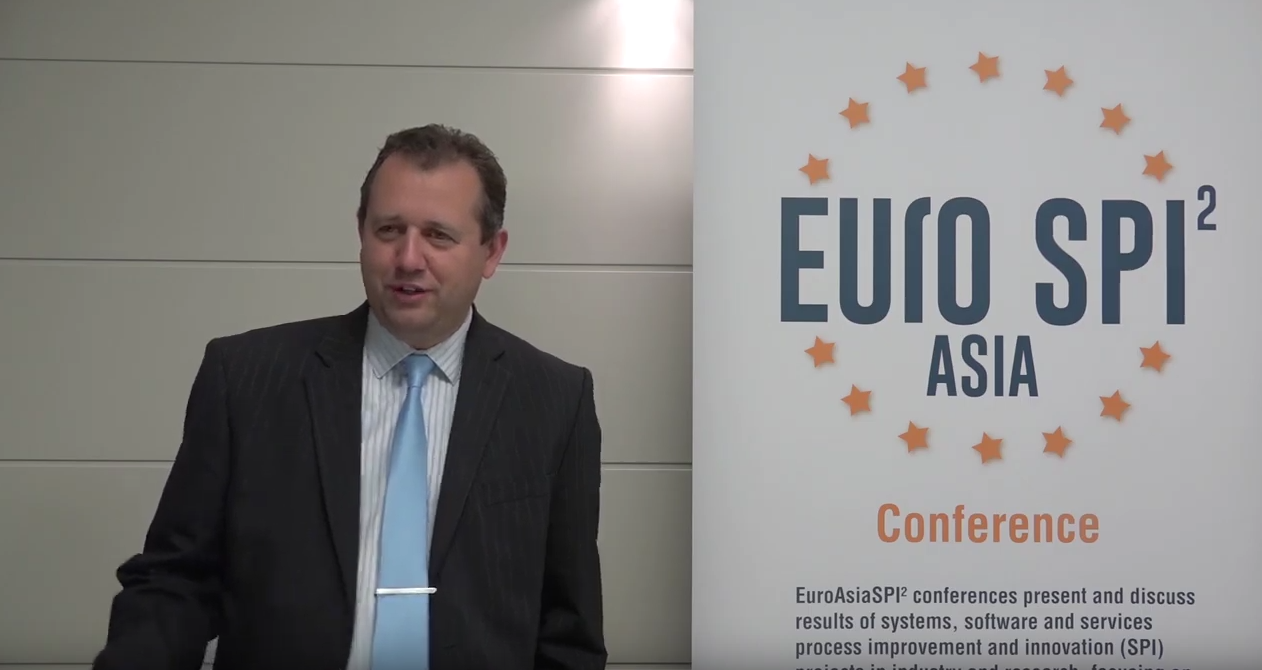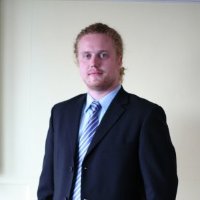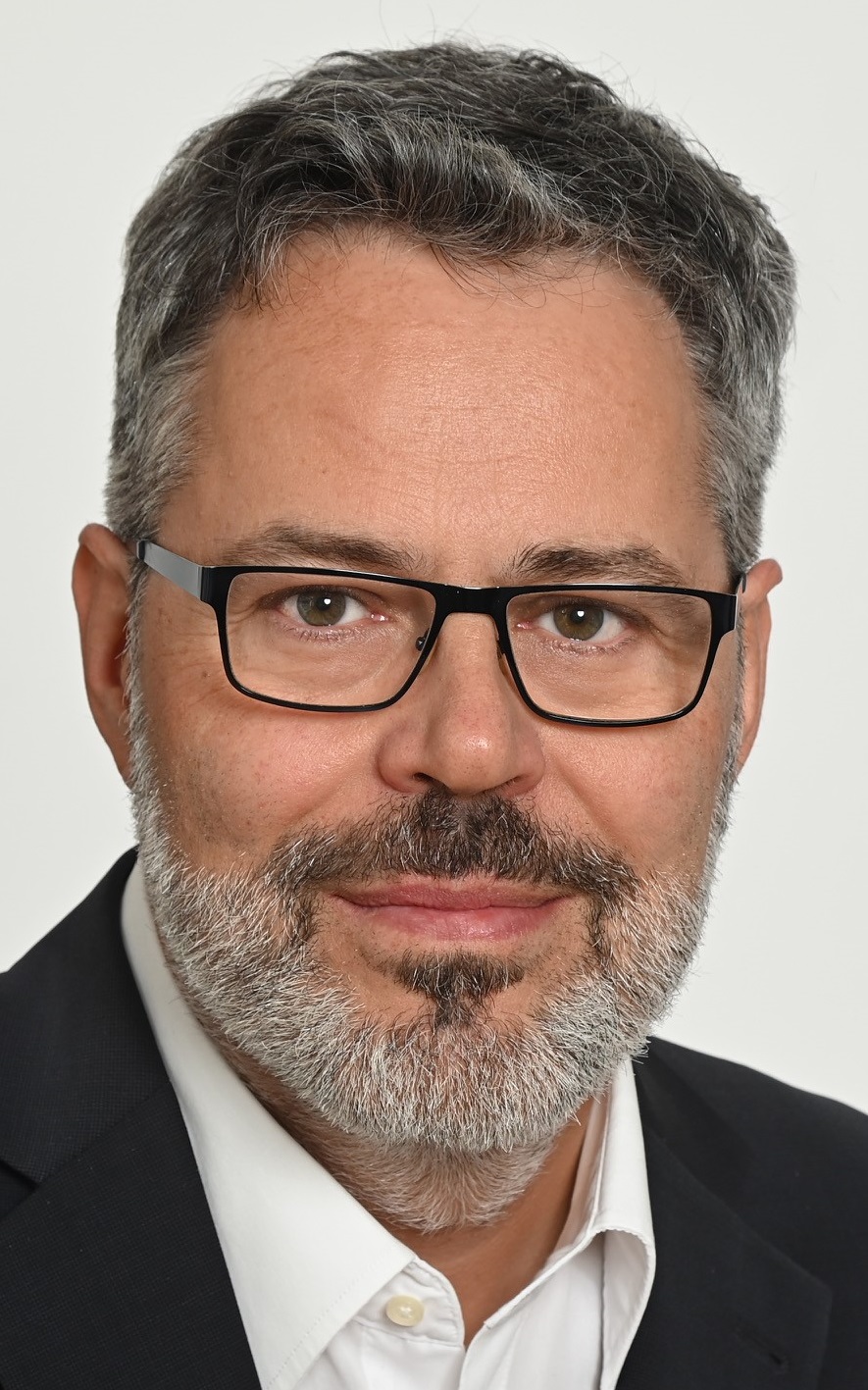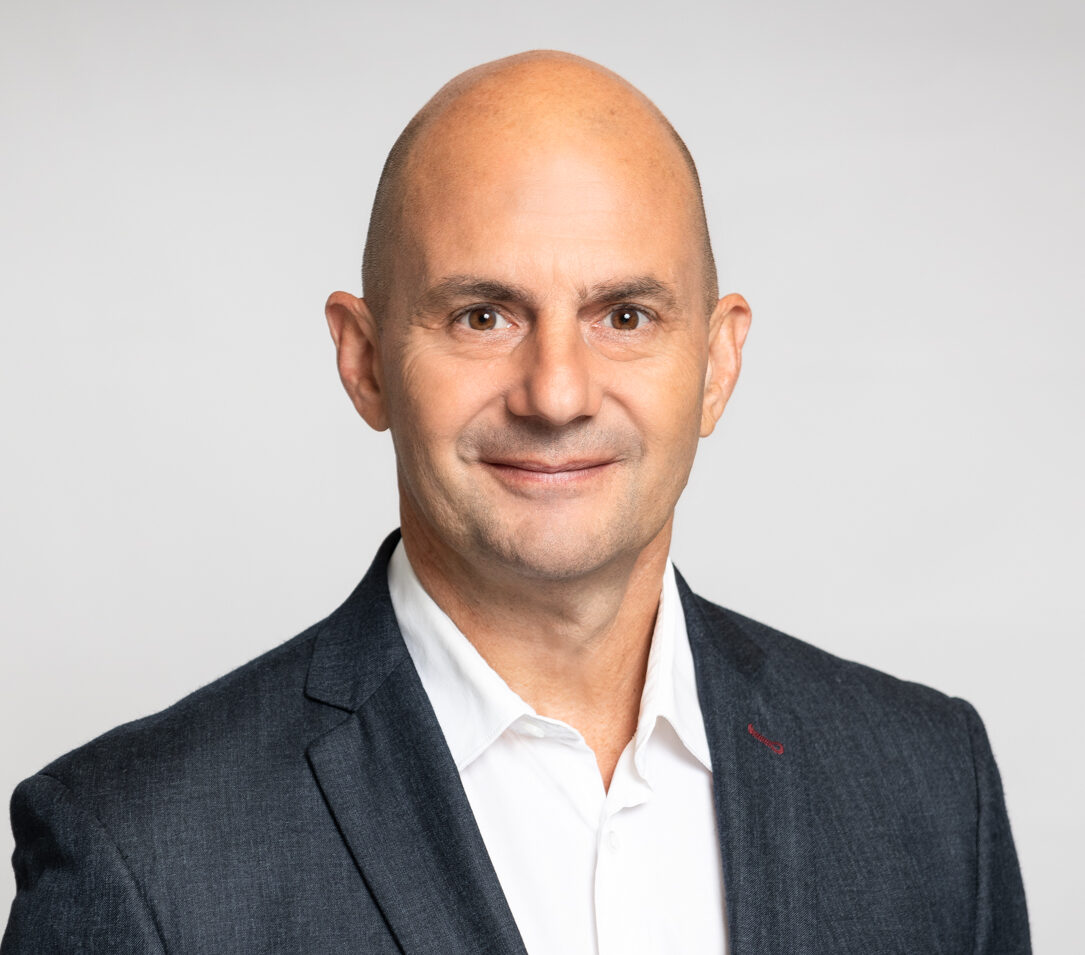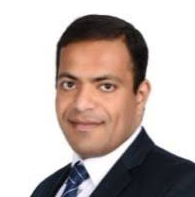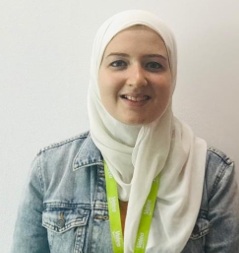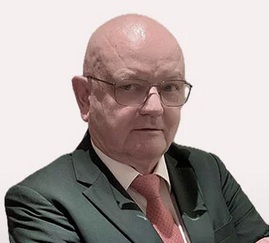Human as the Measure: Standards, Ergonomics and Human-Centered Design for Sustainable Innovation
Abstract: At the core of process improvement lies the principle that “man is the measure of all things.” This perspective is fundamental to human-centered design, where ergonomics, usability, and safety drive innovation as much as technical performance. Placing the human being at the center of evaluation ensures that processes and products evolve not only toward efficiency but also toward meaningful impact on everyday life.
In this context, human-centered testing plays a pivotal role:
Standards with the human as reference → Implementing ISO/IEC/EN norms that explicitly connect product performance to protection, usability, and safety.
Anthropometry-based testing → Using human body measurements or human body 3D scans to ensure fit of protective equipment, clothing, products and systems.
Ergonomic performance tests → Evaluating how solutions affect comfort, mobility, fatigue, or safety under realistic conditions.
Microclimate and thermal comfort tests → Applying moisture, thermal and sweating simulation equipment and manikins, to replicate how the body interacts with environments.
Feedback loops for improvement → Feeding results from human-centered tests back into software, system, and material development cycles, in line with the SPI mindset.
Traditional SPI frameworks such as CMMI or ASPICE emphasize process maturity in software development. Extending these frameworks with human-centered principles highlights how measurement, assessment, and validation processes are equally critical in domains where human interaction, ergonomics, and sustainability are decisive. It fosters not only technically robust results, but also solutions that are ergonomic, safe, and sustainable in real-world applications..
Prof.Dr.sc.ing. Inga DABOLINA She is Head of Research Laboratory, Accredited Personal Protective Equipment Laboratory, Faculty of Civil and Mechanical Engineering at Riga Technical University. From 2016-2019, I.Dabolina was the scientific director and lead researcher in the international project Smart and Safe Workwear (Interreg BSR project SWW, #R006), one of the main tasks of which was the development of functional clothing, her work addressed the development of smart clothing and the integration of electrical technologies into clothing. I.Dabolina is involved in the Fit subgroup of the standardization commission IEEE 3DBody Processing, and has been a member of the IEEE association since 2021. Since 2020,she has been the head of the Ergonomics Electrotechnology Scientific Laboratory, where ergonomic problems are solved using modern anthropometry and specialized instruments. Since the spring of 2020, she has been actively involved in the development and research of personal protective equipment, currently a specialized PPE testing laboratory has been established under the leadership of her. She has been involved as an external industry expert in the structures of the Ministry of the Interior and the Ministry of Defense since 2004.
Which Three Laws? … Human Flourishing in an Algorithmic Society
Abstract: Isaac Asimov, over eighty years ago, framed his fiction within the hierarchical constraints that a robot may not harm a human, must obey human orders, and must protect its own existence. More recently, many technologists have sought to build such regulatory laws into real-world autonomous systems. However, we must realize that the underlying behavior of any system depends on the behavior of the humans who design, implement, operate, monitor, and maintain such systems.
Let us consider instead a sort of humane “three laws” based on the attributes of integrity, empathy, and creativity. The reliability of a given safety- or security- critical system can be seen as fundamentally constrained by the principles of relevant individuals and groups. Technologies cannot perform consistently without human integrity. They cannot be truly beneficial without human empathy. And they cannot meet new challenges without human creativity.
Engineering education and practice must weave these commitments into the very fabric of the profession. I would like to offer some insights into why and how this may be done.
CV: Taz Daughtrey Taz Daughtrey’s business and academic career has focused on software engineering, systems reliability, and cybersecurity.
Taz Daughtrey recently retired as head of the cybersecurity education program at Central Virginia Community College in Lynchburg, Virginia. He continues as Director of the Association for Testing and Software Quality Assurance. Daughtrey is a Fellow of the American Society for Quality and the Founding Editor of its peer-reviewed journal Software Quality Professional.
Taz served for five years as chair of the working group drafting the IEEE Standard for Software Safety. He has been actively involved in developing IEEE Computer Society and ISO standards on topics such as software testing and the planning of verification and validation. In different industry settings, he directed ISO-audited quality management and information security management systems.
Taz was previously a member of the Computer Science faculty at James Madison University and has over 30 years of involvement in designing, conducting, and evaluating critical software-dependent systems. He has led workshops and provided consulting on a variety of software quality assurance topics across North America, Europe, and Japan. Taz has edited two volumes of Fundamental Concepts for the Software Quality Engineer published by ASQ Quality Press.
Taz previous experience in industry included roles in software development, training, and quality improvement in manufacturing and engineering for both commercial and naval nuclear power applications. He has also served as Quality Manager and Chief Security Officer in the medical device industry.
He has been a long-time leader in developing standards for the IEEE Computer Society and certifications for the International Software Testing Qualifications Board.
A Fellow of the American Society for Quality and the Founding Editor of its peer-reviewed journal Software Quality Professional, Taz has edited or contributed to numerous books and publications.
He is proud of his long collaboration with EuroSPI and is delighted to have the opportunity again to participate in another of its events.
ASA Automotive Skills Alliance - First Results of the TRIREME (2024 - 2027) Project and Outlook
Abstract: The ASA (Automotive Skills Alliance DRIVES) has been formed by end of 2021 as a result of the EU Blueprint project DRIVES integrating different automotive associations and members of blueprint projects for automtive to build an upskilling strategy and platform for the automotive sector.
The FLAMENCO project (2023 - 2024) developed a service infrastructure for Europe throigh the ASA with various active , as the blueprint for sectorworking groups such as cooperatios with networks in IT/SW, chip production and packaging (EuroSPI, SIITME), hydrogen forum, innovation agent task force etc.
TRIREME, as the blueprint for sectorial skills collaboration in automotive (2024 - 2027) , developed first key skills, re-evaluated the skills for the skills required for a more resilient European automotive industry, and developed first training in the EU wide skills hub (e.g. using ISO 560xx innovation management system norm, strategic intelligence with AI). The first outcomes of the intelligence reports will be presented, giving a direction for automotive in these challenging times.Petr Dolejsi was born in 1977 in Prague. He has graduated PhD. in Economics and Social policy at the University of Economics in Prague, following the Masters´ degree in Economics and Reginal policy. He also passed several courses and stages, including scholarhip at the Universite Cathollique du Louvain in Belgium.
He has started his career within the public services on different, leaving the Ministry for Regional Development of the Czech Republic at the Head of Unit post to Permanent representation in Brussels in 2004. He became member of the Presidency team in 2009 chairing the Competitiveness and Growth working party of the Council. In 2010 he joined ACEA and became a Director for Mobility and Sustainable transport, with a specific focus on CO2 policy, industrial policy and alternative
Dr Jakub Stolfa is the president of the Automotive Skills Alliance & Program Manager and Assistant Professor at VSB - Technical University of Ostrava. Jakub has been coordinator of the EU Blueprint projects DRIVES (2018-2023), FLAMENCO (2023-2024), and TRIREME (2024-2027).
Enhancing Software Maturity Management through AI Infused by the TRIREME Approach
Abstract:
With the advancements in Artificial Intelligence (AI), new opportunities emerge for automating and enhancing the analysis of software maturity. AI-driven tools can process large volumes of data, identify patterns, and provide insights into software evolution. However, before determining whether AI can reliably evaluate software maturity, it is essential to understand how maturity has traditionally been defined and assessed.
This paper explores the foundations of software maturity, examines existing methodologies, and investigates the potential of AI-driven solutions in providing trustworthy feedback. An additional focus of this work is the potential reuse of the TRIREME approach, investigating its adaptability to broader domains within software engineering. To assess the real-world applicability of the proposed method, practical use cases are used for verification and validation purposes. The approach aims to support scalable, unbiased, and interpretable analyses—offering a consistent and replicable framework for software maturity analysis.
Flavia Elena Povirnaru has a master degree from the Politehnica University of Timisoara, is an Automotive SPICE Assessor, and is in Cariad Technology responsible for establishing the Quality Assurance Strategy and planning of Quality Assurance activities in the context of E3 2.0 ADAS/AD Parking Function Bundle. She is coaching and supporting the teams to achieve the project goals. She is an active member of the SOQRATES working group in which Tier 1 and OEMs cooperate on best practices, and cooperates with the TRIREME/ASA innovation agent task force using AI best practices.
Andreas Gasch is an Automotive SPICE Principal Assessor and Quality Assurance Lead E3 NextGen Platform Head of CoC Quality ADAS/AD in Caraid Technology of Volkswagen AG. He has done more than 60 assessments and has from previous work experiences with System Architecture Safety & Cybersecurity, Quality Management (Elektrobit), Systems Engineer at Airbus Defense and Space.
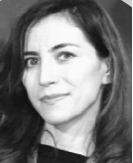
Flavia Elena Povirnaru Cariad Technology, Germany
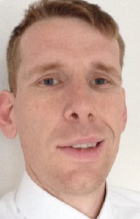
Andreas Gasch Cariad Technology, Germany
The intacs® certification scheme - status and outlook
Abstract: The iNTACS e.V. association was founded in 2006. For 20 years now, the association has been operating the intacs® certification scheme, which is recognized internationally and by the automotive industry. This presentation will describe the path of the successful certification scheme, show the current status and provide an outlook for future developments. The focus is on the question of how the intacs® certification scheme can continue to support the community in mastering the development of complex and networked systems in the future.
Lars Dittmann is iNTACS e.V. Vice President and Managing Director. He was spokesman of HIS working group and leader of VDA AK13. He has experience in various automotive OEM areas has done more than 50 assessments.
A Multi-Level Approach to TARA: Attack Feasibility in Interference-Free Scenarios and the Trusted Zones Approach
Abstract: Automotive SPICE for Cybersecurity incorporates the Cybersecurity Risk Management process (MAN.7), aligning with the Risk Assessment methods defined in ISO/SAE 21434:2021 (Clause 15). Both standards provide guidance on conducting Threat Analysis and Risk Assessments (TARA). However, they do not specify how to integrate the determination of attack feasibility when multiple TARAs emerge across different development phases. This talk explains how the concept of freedom from interference can facilitate a unified approach to determining attack feasibility in such scenarios.
Also the talk addresses how to install new architectures with trusted zones and defense layers that allow to build car architectures that allow lower cost and still reaching sufficient security.
CVs: Thomas Liedke is the moderator of the INTACS working grpup developig the training materials and examples for APICE for Cybersecurity and Richard Messnarz is the moderatpr of the SOQRATES group who contributed examples and explanations for the security processes.

Thomas Liedke,
Senior Cyber Security Expert,
SYNSPACE, Germany

Dr Richard Messnarz,
Manager and Senior Expert,
ISCN/SOQRATES Group, Graz, Austria
The AI Evolution: Transforming Process Improvement, Compliance, and Culture in the age of AI
Abstract: In the rapidly advancing era of artificial intelligence, its integration into organizational processes is not just a competitive advantage but a necessity. This keynote explores the transformative role of AI in process improvement and compliance management, addressing how AI-driven automation, predictive analytics, and knowledge graphs are reshaping traditional frameworks. Beyond technology, the keynote delves into the profound impact AI has on organizational culture—what we call the "AI Culture." How does the adoption of AI influence decision-making paradigms, foster innovation, and challenge ethical boundaries? Join us as we uncover strategies for leveraging AI to enhance efficiency, ensure regulatory alignment, and build a resilient culture that embraces AI responsibly, paving the way for sustainable success in the digital age.
Peter Pedross is the Founder of PEDCO and the Creator of Applied SAFe. He is a Certified Consultant in the “Scaled Agile Framework” since 2012 as well as in “Disciplined Agile Delivery”, and has a Diploma in Quality Management from EFQA. Peter was in the first ever SAFe class held in Switzerland with Dean Leffingwell as his trainer. Peter Pedross has experience in agile practices (XP) since 1999. In the course of his career, he has authored publications and given lectures on the topics of Agile, DevOps, Scaled Agility in Regulated Environments, Architecture, Process Engineering, and Lean-Agile Requirements Engineering, in the USA, Japan, and in Europe.
He has over 30 years’ experience in software development. As the architect of the process framework of one of the leading Swiss financial institutions, he was responsible for the entire set of life-cycles (including agile), processes, methods, and tools used. This process framework was then used over the years by hundreds of projects around the world, and continually improved.
Peter Pedross is the President of the board for Computer Science at the Swiss Association for Quality (SAQ), he is also a member of the board at SAQ. Peter Pedross also leads the Non-Profit special interest group on scaling agility in Switzerland.
Bridging European, Chinese & African Automotive Quality Standards - Influenced by Civilization History
Abstract:The various historical and cultural paths taken by major civilizations have a significant influence on the development of international automotive quality standards.This Research considered a comparative historical study of automotive quality frameworks in Europe, China, and the African world, examining the ways in which political, industrial, and cultural factors have impacted the creation and uptake of automobile standards. Process-oriented models like Automotive SPICE (ASPICE) and ISO 26262 have emerged as a result of Europe's rigorous regulations and structured engineering heritage. emphasizing systematic development, traceability, and functional safety. In contrast, China’s rapid industrialization and state-driven innovation led to the emergence of specific standards, which integrate both international influences and local regulatory priorities. Meanwhile, the African world’s contributions to science, mathematics, and early engineering, especially during the Golden Age established fundamental principles in systemic thinking, measurement, and quality that are in line with contemporary quality methods. This study demonstrates regional strengths and the possibility of cross-cultural enrichment in global automotive software quality management by mapping historical engineering principles to contemporary requirements.
Samer Sameh has more than 13 years of experience in the field of Embedded Software. He graduated from the Faculty of Engineering, Computer and Control department. He received a postgraduate professional diploma of Embedded Systems from Information Technology Institute (ITI), and obtained an Executive MBA, in the field of Operations Management, from Nile University, Giza, Egypt. Samer is currently working at Valeo, an automotive supplier and partner to automakers worldwide, as an Embedded SW Developer, Integrator and SW Validation Engineer, with more than 5 years of experience in the field of SW Quality Assurance and Process Improvement. He is certified as an auditor in some of the international automotive standards (e.g. automotive spice provisional assessor, ISO 9001:2015 Lead auditor and IATF 16949 internal auditor). As a Senior Process Improvement Manager & Senior Expert at Valeo, Samer leads the assessments which cover a wide range of projects in the USA, Germany, Spain, China, India, France, Czech, Ireland and Egypt. Samer is the founder of the Egyptian SPICE consortium and initiator of hosting INTACS Gate4SPICE events in Africa & Middle East. In addition to that he has a rich record as keynote speaker in automotive international conferences (e.g. VDA SYS, EuroSPI, Agile Automotive Engineering, IEEE, …. ) He is the leader of ASA (Automotive Skills Allianz), working group 3.6 which is a program funded by the European Union with the mission of bringing together different kinds of stakeholders involved in the automotive ecosystem and ensuring continuous, pragmatic and sustainable cooperation on the skills agenda in the ecosystem. .
Menna Noureldin, M.Sc Technical Discipline Leader , Ph.D Researcher in Software Engineering, Eng. Quality & Processes Expert. Automotive SPICE Provisional Assessor intacs-EG21-2472-23466-01 .
ASQMS...a new software quality standard for SDVs from China
Abstract: With the tremendous technological advancement of so7ware defined vehicles (SDVs) in China, it was time for the authorities in charge of consumer protection to adjust the landscape of quality management standards. IATF 16949 is considered a very successful QM system standard in China: 50% of the certificates issued worldwide relate to supplier factories located in China. However, the IATF 16949 system standard does not cover software producing, processing and selling organizations and was not prepared to extend the standard quickly. This created a gap in the field of QM standards. The increasing number of recalls with root causes from E/E and software sectors ultimately prompted China to be the first nation to create a QM system standard. ASPICE as a process standard is tolerated due to a lack of alternatives, but is ultimately not seen by local Chinese companies as covering the gap. In addition, ASPICE focuses on single project assessments while ASQMS has an organizational focus. Due to the organizational focus the claim is that the coverage of the entire software ecosystem is higher. Chinese organizations will prefer this organizational approach above the the ASPICE based project focus, especially for maturity levels up to L3. BYD and Geely are now ASQMS certified in their software departments, others are asking suppliers to become ASQMS compliant. The Chinese brands will produce in Europe and will apply their SDV standards to suppliers here. The European industry will necessarily follow in the development of SDVs and it is now time to harmonize the standards, and in a world that still thinks and acts globally, to apply the standards together, develop them together and use only the best components and ideas on both sides. The keynote - Positions ASQMS in the automotive ecosystem - Compares ASQMS with other standards - Describes the benefits for organizations that are ASQMS compliant - Offers opportunities for co-operation between China and Europe
Dr Wolfgang Rainer Wagner has more than 40 years of experience in Automotive, and had/has leading positions, such as Founder / General Manager VDA-QMC China Association of German Car Industry (2005...2008), ACCU X-Tech (Hong Kong, Suzhou, Munich) CEO and CACPQSP Automotive Workgroup, International Representative since 2021, and he is currently the acting managing director of the ASQMS Germany GmbH. He has more than 15 years experience in leading positions to establish China and Europe co-operations.
